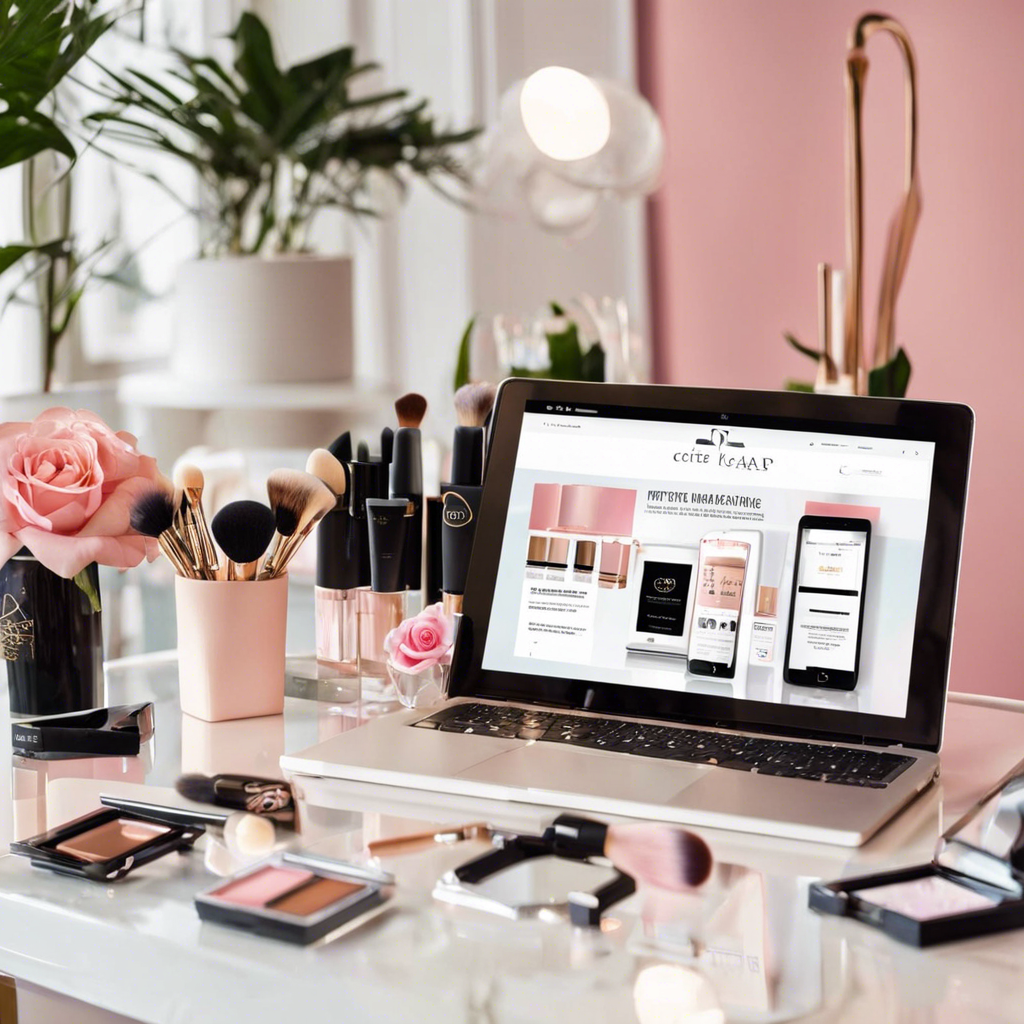An exploration of digital marketing’s influence on the beauty industry, highlighting its advantages and challenges.
The beauty industry, a realm of self-expression and personal care, has been significantly transformed by the advent of digital marketing. With the rise of social media and online platforms, beauty brands have had to adapt their strategies to reach and engage with their target audiences. This article delves into the effectiveness of digital marketing in the beauty sector, examining its impact, advantages, and potential challenges that brands should navigate to stay ahead in the digital landscape.
In today’s digital age, where consumers increasingly rely on online resources to inform their purchases, the beauty industry has had to evolve its marketing strategies. Traditional marketing methods, such as print advertisements and television commercials, still hold some value, but digital marketing has become a powerful tool for beauty brands to reach and influence their customers directly.
Digital Marketing and Beauty Industry Convergence
The intersection of digital marketing and the beauty industry has created a dynamic environment where brands can connect with consumers on a deeper level. Social media platforms, such as Instagram and YouTube, have become virtual beauty hubs, providing brands with a unique opportunity to showcase their products and engage with potential customers. For instance, a study by Hootsuite and We Are Social found that 72% of internet users access social media [^1^], highlighting the vast audience brands can tap into through digital marketing.
A great example of a brand leveraging digital marketing effectively is Elf Cosmetics. By embracing influencer marketing and social media advertising, the brand has been able to increase its digital presence and engage with a younger audience. Elf Cosmetics’ successful digital campaigns have resulted in a significant increase in online sales and brand visibility [^2^].
Benefits of Digital Marketing in Beauty
Digital marketing offers numerous advantages to beauty brands, allowing them to:
Build Brand Awareness and Reach a Global Audience
Through digital marketing, beauty brands can expand their global reach and increase brand awareness. Social media platforms enable brands to connect with a diverse audience, fostering a sense of community and brand loyalty.
Engage with Customers Directly
Beauty brands can interact directly with their customers through social media comments, messages, and reviews. This two-way communication helps build trust and allows brands to address customer concerns and feedback promptly.
Personalize the Shopping Experience
Digital marketing enables beauty brands to offer personalized product recommendations and targeted advertising based on customer preferences and purchase history, enhancing the overall shopping experience.
Utilize Influencer and Celebrity Endorsements
Influencers and celebrities have become powerful tools in digital marketing for beauty brands. Their endorsements and collaborations can significantly impact product sales and brand image.
Challenges and Considerations
While digital marketing offers numerous benefits, beauty brands should also be aware of potential challenges and adapt their strategies accordingly:
Navigating the Competitive Landscape
The beauty industry is highly competitive, and standing out in the digital space can be challenging. Brands must differentiate themselves through unique value propositions and creative content.
Dealing with Online Reviews and Customer Feedback
Online reviews and customer feedback can significantly influence a brand’s reputation. Beauty brands should develop strategies to monitor and respond to customer feedback, both positive and negative, to maintain trust and loyalty.
Frequently Asked Questions
Q: How can beauty brands measure the success of their digital marketing campaigns?
A: Success can be measured through various metrics, such as website traffic, engagement rates on social media, conversion rates, and customer retention. Tools like Google Analytics and social media insights can provide valuable data for analysis.
Q: What are some effective content creation strategies for beauty brands in digital marketing?
A: Beauty brands can create engaging content by sharing product tutorials, behind-the-scenes videos, customer testimonials, and interactive posts. Collaborating with influencers and hosting giveaways can also drive engagement.
Q: How can beauty brands ensure their digital marketing strategies are inclusive and diverse?
A: Brands should strive for diversity and inclusivity by featuring models and influencers from various backgrounds, skin tones, and body types. Ensuring accessibility in digital content and being mindful of cultural sensitivities are also essential.
In conclusion, digital marketing has revolutionized the beauty industry, providing brands with unique opportunities to connect and engage with their customers. By building brand awareness, personalizing the shopping experience, and leveraging influencer endorsements, beauty brands can thrive in the digital landscape. However, navigating competition, managing online reviews, and adapting strategies to stay relevant are key challenges to overcome. With a well-thought-out digital marketing approach, beauty brands can continue to innovate and meet the evolving needs and expectations of their customers.
—
## Relevant External Links:
1. Global Digital Report
2. Elf Cosmetics’ Digital Marketing Success
3. Social Media Statistics
